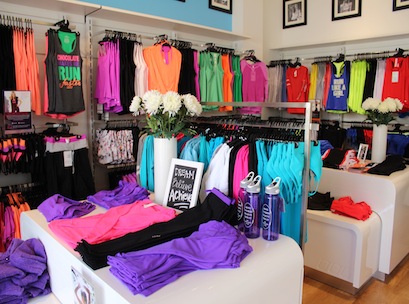Super Retail Group (SRG) is continuing to evaluate acquisition opportunities in leisure product categories and could potentially be a suitor for another Queensland-based retailer, Lorna Jane. Lorna Jane, which opened its first store in Brisbane 1993, currently has 155 stores, including 25 in the US. The owners of the activewear retail chain are understood to be pursuing a $500 million trade sale after deciding not to proceed with a public float. Lorna Jane Clarkson and 40 per cent private
equity shareholder, Champ Ventures, have reportedly received at least five expressions of interest through the financial advisors, Credit Suisse.
Inside Retail PREMIUM understands the listed SRG has considered a bid for the chain, which could be incorporated into its sports division alongside the Rebel and Amart brands.
In a presentation to the recent Macquarie Securities Conference, David Burns, SRG’s CFO, said the retailer is evaluating opportunities to acquire businesses within its existing product categories as well as other leisure categories.
The acquisitions would need to have a cultural fit and market leading potential, with the prospect of a post tax return on capital of at least 15 per cent in an existing category or more than 20 per cent in a new category.
SRG has 636 stores in Australia and New Zealand and has not expressed any intention to look further afield for its retail operations, a factor which could deter a formal bid for Lorna Jane.
SRG operates 92 Rebel stores, 50 Amart stores, and 21 Workout World outlets and has set a five year target to increase its sports division’s store network by around 100 before factoring in any bolt on acquisitions.
The company is working on new store formats for both Rebel and Amart as it strives for like for like sales growth of more than four per cent a year.
The Super Retail Group is the ninth largest retailer in Australia by turnover, with annual sales of more than $2 billion.
It acquired the Rebel sports chain in 2011 from private equity firm, Archer Capital, for $610 million, indicating that the $500 million price tag on Lorna Jane would not be beyond it, although the reported asking price seems steep given sales and profit performance.
In fact, a trade sale seems to be a preferred exit for Champ Ventures because store sales numbers didn’t look attractive enough for a float.
Average revenue per store is around $825,000 and average weekly turnover was just $15,865 in the 2013 financial year, albeit the averages were lowered by new store openings.
Lorna Jane posted earnings of $19.6 million for the 2013 financial year, up from $12.9 million in 2012.
Sales were up 30 per cent for the year to $138 million, with like for like store sales in Australia up 10.9 per cent, but lower for the stores in the US which are still in the establishment phase.
One of the highlights of the 2013 financial year was a 75.7 per cent increase in online sales to $10.3 million.
While Lorna Jane has been a retail success story, it is now racing higher staffing and occupancy costs, significant costs associated with the US expansion, and increasing competition in the market, including Rebel.
SRG has plans to be one of Australia’s five largest retail companies, which means it would need to increase annual revenues by more than $1 billion in current dollar terms and leapfrog retailers such as JB Hi-Fi, 7-Eleven, Myer, and Chemist Warehouse.
The sports division of SRG has posted 2.9 per cent like for like growth in the 18 weeks to May 2, but with comparative sales growth up 4.4 per cent year to date in the 2014 financial year.
With new stores included, total sales growth in the sports division are up 5.9 per cent, but gross margins are tracking below the same three quarters last year.
The SRG leisure division that includes the BCF, FCO and Rays Outdoors retail brands is currently up 6.8 per cent on total sales, but only 0.7 per cent on a like for like basis year to date.
Auto revenues year to date are up 4.2 per cent, with like for like store sales growth of 2.7 per cent.

